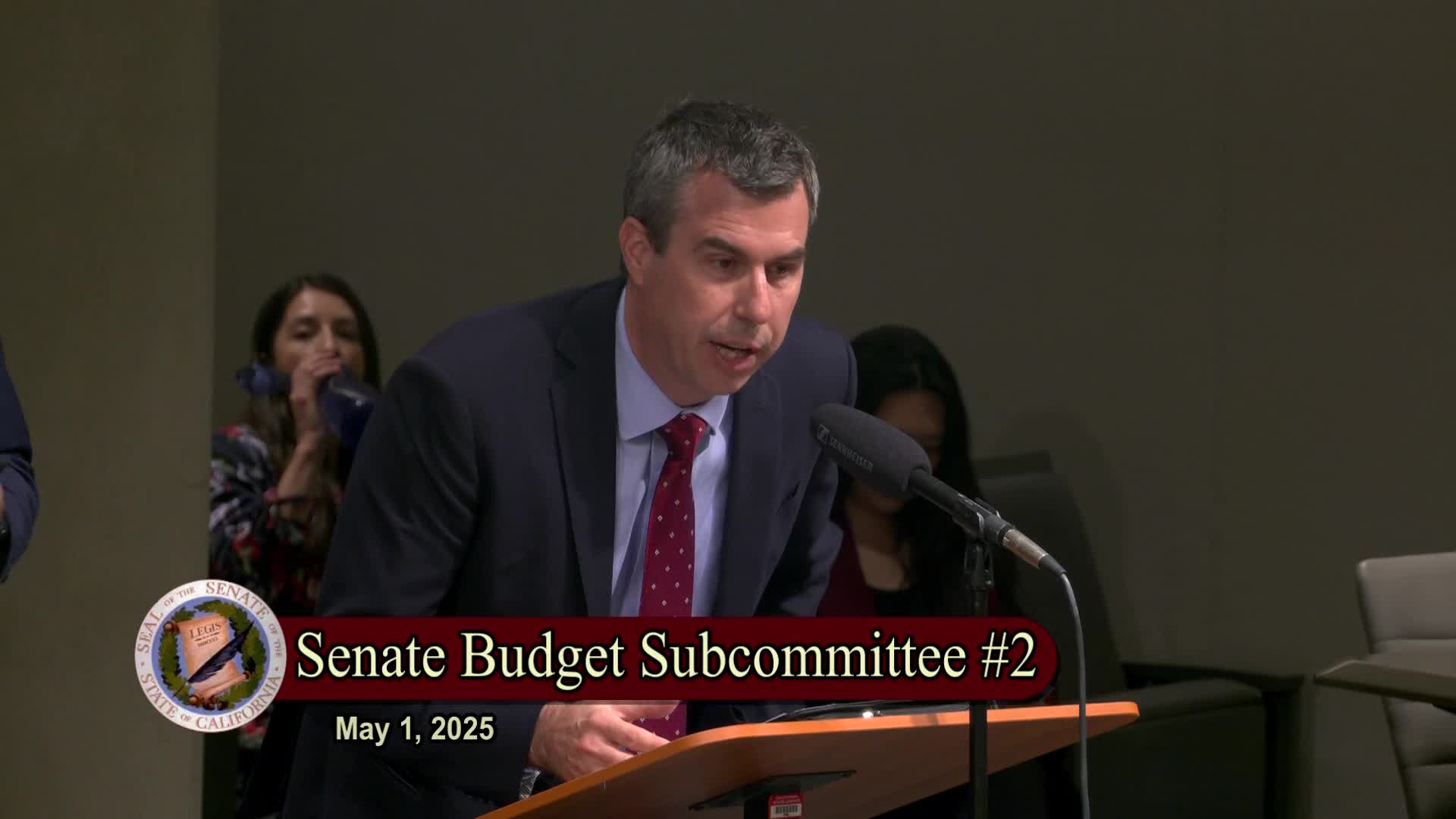Article not found
This article is no longer available. But don't worry—we've gathered other articles that discuss the same topic.
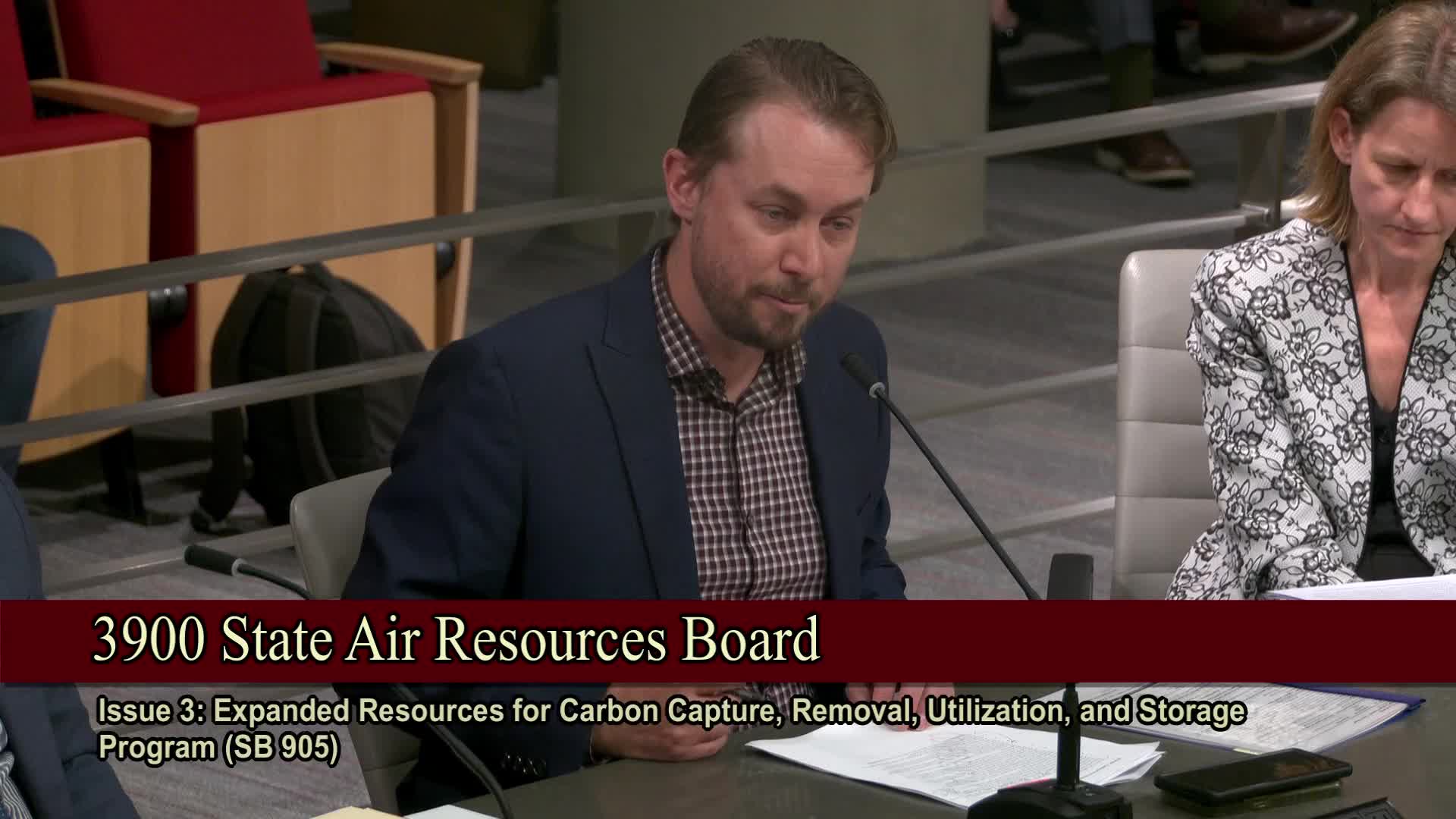
CARB asks for permanent staff to implement SB905 carbon management program as community groups urge rulemaking before new projects
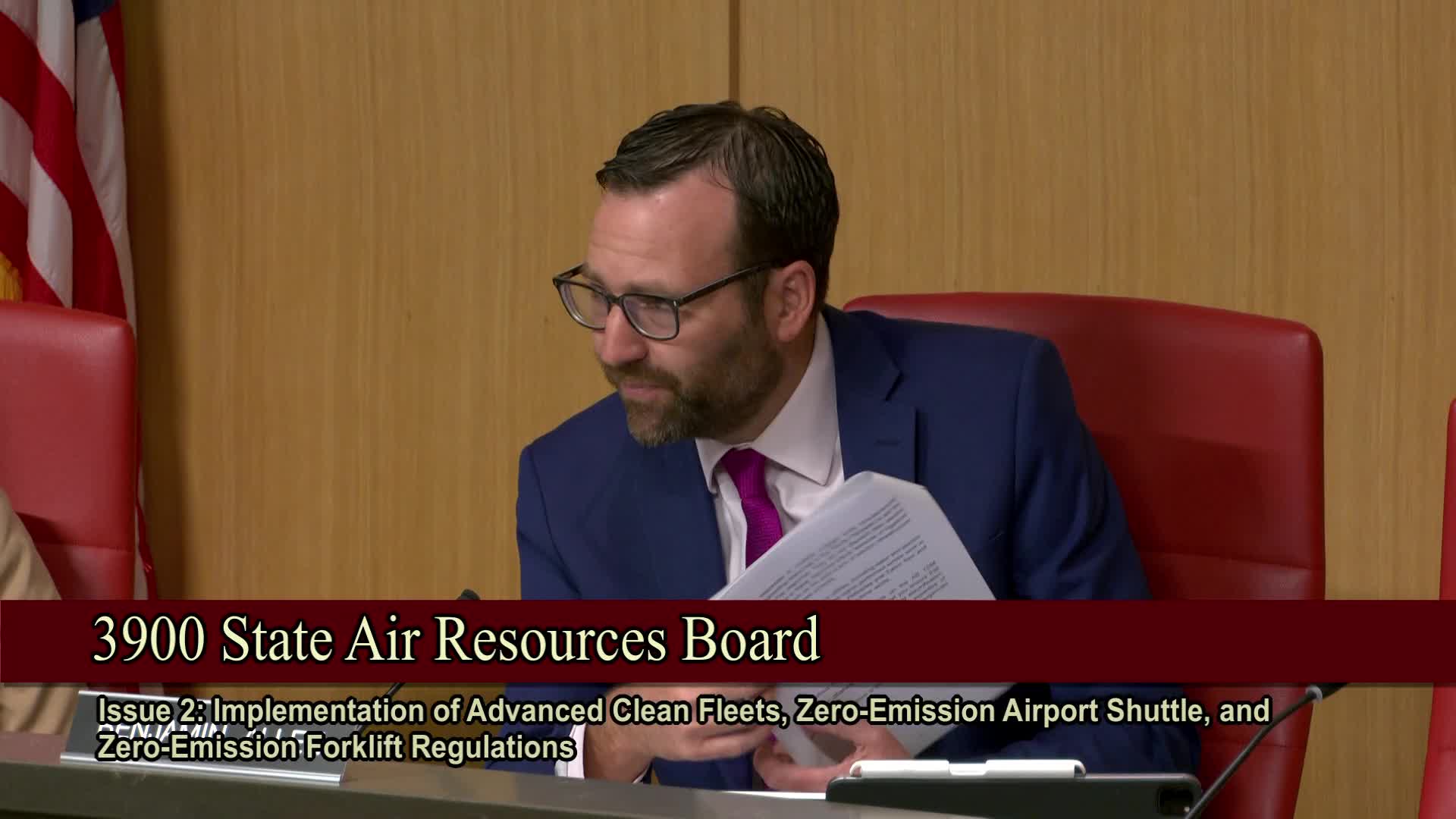
CARB tells Senate panel federal uncertainty complicates Advanced Clean Fleets, zero-emission forklifts; LAO questions staffing request
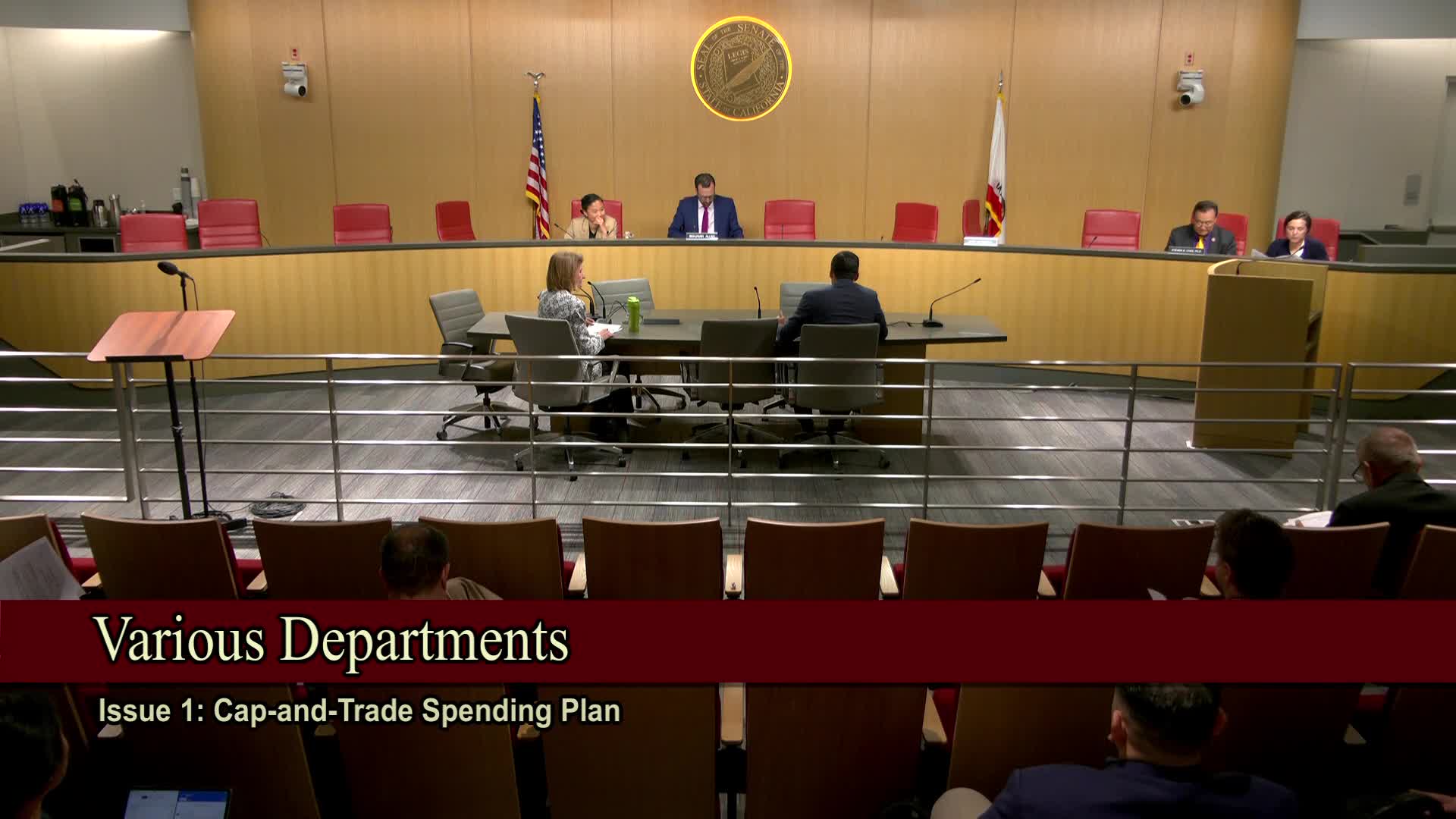
Senate subcommittee reviews cap-and-trade spending plan as auction revenues fall; short-term shift to Motor Vehicle Account proposed
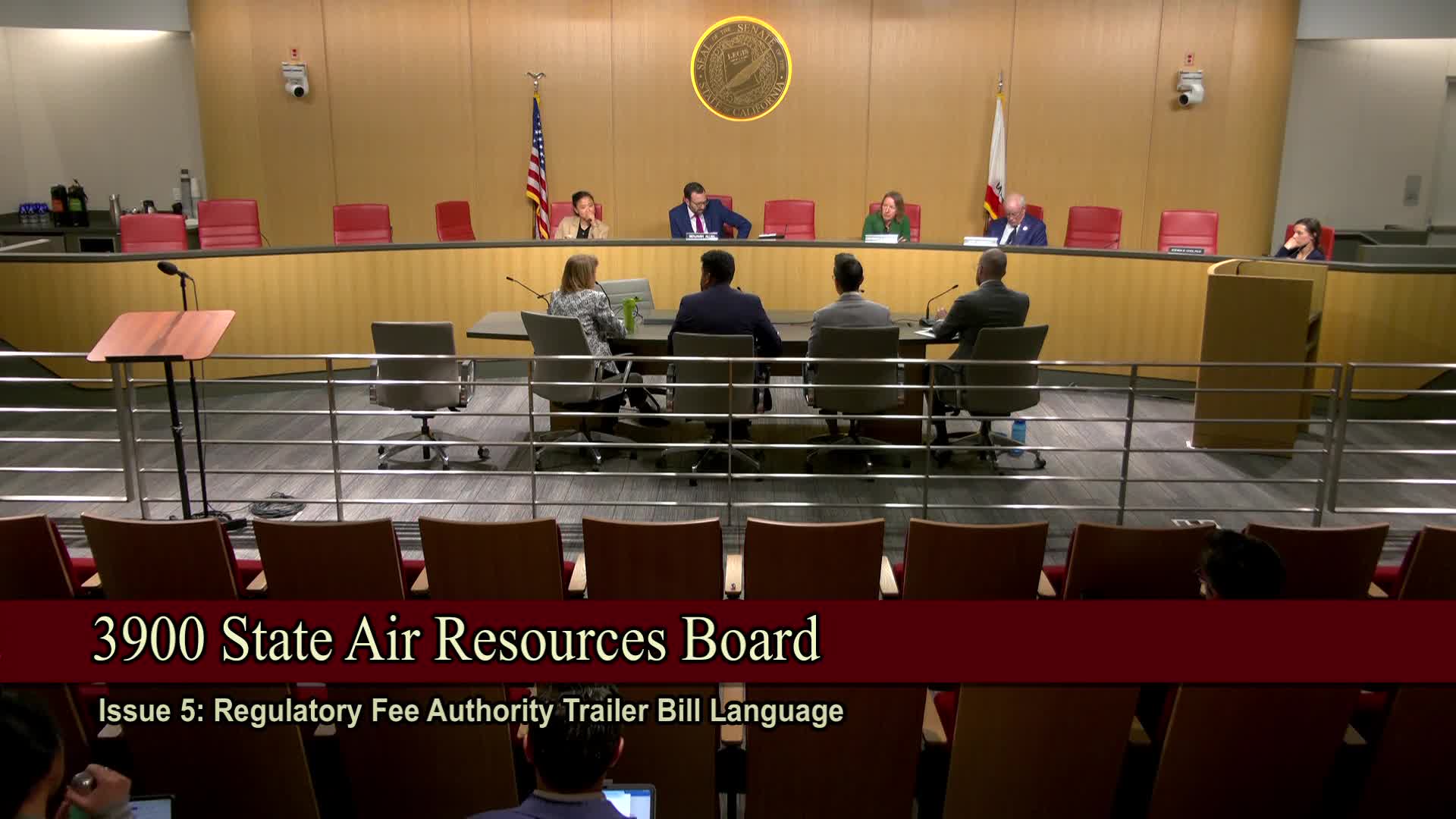
LAO and industry urge Legislature to reject broad CARB fee authority; CARB says targeted fees will move costs to regulated entities
